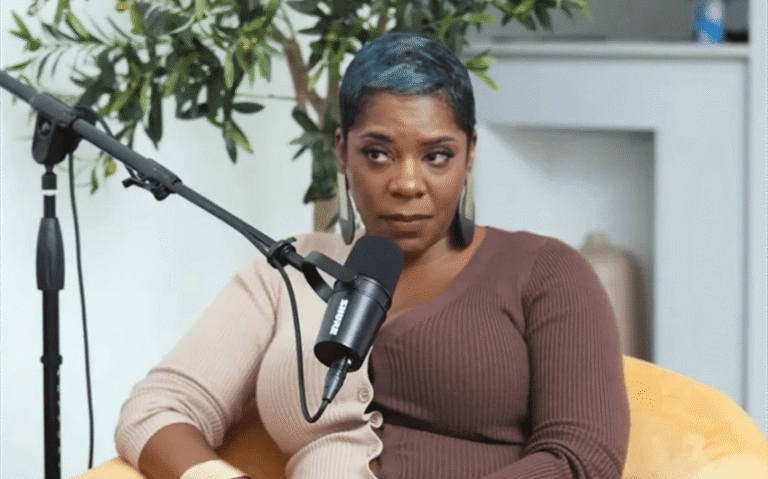Who Is Lori Gottlieb’s Husband? Unveiling the Therapist’s Personal Journey
If you’ve ever read Lori Gottlieb’s best-selling books or listened to her insights on mental health and relationships, you may have found yourself wondering about her own personal life—particularly, who is Lori Gottlieb’s husband? Given her expertise as a psychotherapist and author of thought-provoking books like Maybe You Should Talk to Someone, it’s only natural for readers to be curious about the woman behind the advice. Interestingly, while she has helped millions of people navigate their romantic lives, Lori Gottlieb is not married. Her life as a single mother by choice, combined with her candid exploration of her own romantic experiences, offers a unique and inspiring perspective on love, loss, and emotional growth.
Lori Gottlieb’s Relationship Status
Contrary to what some might assume, Lori Gottlieb does not currently have a husband. She has spoken publicly and written extensively about being single and choosing to become a mother on her own terms. Her son, Zach, was born with the help of a sperm donor after she made the conscious decision to become a single mother by choice—a decision she openly shares with audiences who appreciate her honesty and vulnerability.
While Gottlieb has kept many details of her personal life private, she has made it clear that her path to motherhood was not a fallback but a deliberate choice. It was driven by her deep desire to be a parent and her willingness to take full responsibility for that role, with or without a partner. This decision reflects the same kind of self-awareness and emotional bravery she encourages in her clients and readers.
Past Relationships and Experiences
While Lori Gottlieb does not have a husband, she has had meaningful relationships in the past. One particularly impactful relationship ended when she and her partner couldn’t agree on the issue of children. He did not want to become a father, and she very much wanted to be a mother. That relationship’s end was painful, and Gottlieb has acknowledged that it was one of the more defining moments in her life.
She writes about this experience in her critically acclaimed memoir Maybe You Should Talk to Someone, where she bravely explores both her personal struggles and her role as a therapist. The breakup prompted a deep emotional reckoning, leading her to seek therapy herself—a decision that not only helped her heal but also enriched her understanding of the therapeutic process.
Rather than shielding her vulnerability, Gottlieb used it as material for growth. By opening up about her heartbreak and self-doubt, she demonstrated that even experts in emotional wellness are not immune to life’s curveballs. Her story struck a chord with thousands of readers who recognized their own pain in her narrative.
Insights from “Marry Him”
One of Lori Gottlieb’s most talked-about books is Marry Him: The Case for Settling for Mr. Good Enough. This book stirred conversation and controversy when it was published, in part because of its provocative title and premise. Drawing from her own romantic experiences and extensive interviews, Gottlieb made the case that some women may be waiting for an idealized version of a partner who may not exist—and in doing so, they risk overlooking perfectly good matches.
Though the book was sometimes misunderstood as a call for romantic compromise, Gottlieb clarified that she wasn’t advocating for people to “settle” in the sense of giving up on love. Rather, she was encouraging readers to reconsider their checklists and to value emotional maturity, kindness, and compatibility over superficial qualities.
Marry Him was shaped by her own reflections on relationships, aging, and the cultural messages women receive about romance. While it was met with both praise and critique, it positioned her as an author willing to challenge popular narratives and initiate uncomfortable but important conversations. It also reinforced the reality that Lori Gottlieb, despite her wisdom and empathy, has navigated the same emotional terrain as the rest of us.
Embracing Single Motherhood
One of the most defining choices in Lori Gottlieb’s personal life has been her decision to become a single mother. After the end of her significant relationship, and with a strong desire to raise a child, she pursued motherhood on her own. Using a sperm donor, she gave birth to her son, Zach, and began her journey as a solo parent.
This choice was not made lightly. As a therapist, Gottlieb understood the emotional, financial, and psychological demands of raising a child. But she also understood the joy and fulfillment that parenthood could bring. Her approach to single motherhood was pragmatic yet filled with hope, and she has often spoken about the profound love and meaning her son brings to her life.
Gottlieb doesn’t glamorize the experience—she has acknowledged the challenges and exhaustion that can come with raising a child alone—but she also doesn’t regret it. Her story offers a refreshing counterpoint to traditional family narratives and shows that love and commitment are not limited to romantic relationships. Parenting, in her view, is its own form of enduring love story.
Public Perception and Privacy
As a public figure who writes and speaks extensively about emotional intimacy, Lori Gottlieb is often the subject of public curiosity. Many readers naturally want to know more about her personal relationships, especially given the openness with which she writes about her experiences. However, she draws a clear boundary between her professional insights and her private life.
While she shares personal anecdotes in her writing, especially when they serve a broader message or emotional truth, she is careful not to overexpose her family or current romantic status. This balance between authenticity and discretion has earned her respect among peers and readers alike.
Gottlieb’s selective transparency reinforces the idea that vulnerability doesn’t require complete exposure. You can be honest without telling everything, and you can connect deeply with others while still preserving your privacy. It’s a lesson in boundaries that many of her readers—and therapy clients—find empowering.
Featured Image Source: npr.org







